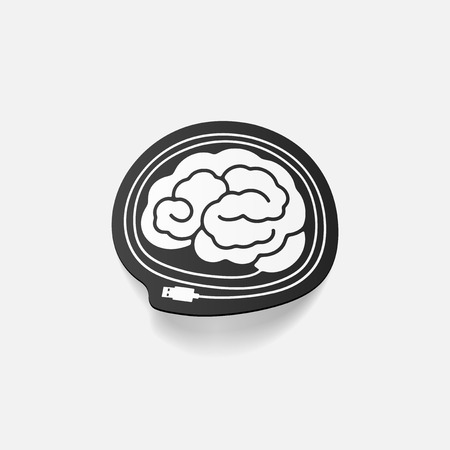1. What Happens in Your Brain When You Drink Coffee
Have you ever wondered why a cup of coffee can make you feel more awake and alert? It all comes down to how caffeine interacts with your brain chemistry. Let’s break it down in a way that’s easy to understand.
How Caffeine Works in the Brain
Caffeine is a natural stimulant found in coffee. Once you drink your morning brew, caffeine quickly enters your bloodstream and makes its way to your brain. There, it works by blocking a specific brain chemical called adenosine.
What Is Adenosine?
Adenosine is a neurotransmitter that helps regulate your sleep-wake cycle. Throughout the day, adenosine levels gradually build up in your brain, making you feel more tired and ready for rest. Think of it as your body’s natural “sleep signal.”
Caffeine as an Adenosine Blocker
Caffeine acts as an adenosine receptor antagonist. That means it binds to the same receptors in the brain that adenosine would normally attach to—but without activating them. In simple terms, caffeine blocks adenosine from doing its job, so you don’t feel as sleepy.
| Neurochemical | Role in the Brain | Effect of Caffeine |
|---|---|---|
| Adenosine | Promotes sleepiness | Blocked by caffeine |
| Dopamine | Regulates mood and motivation | Enhanced by caffeine indirectly |
| Norepinephrine | Increases alertness and focus | Stimulated by caffeine use |
The Result: Increased Alertness and Wakefulness
By preventing adenosine from binding to its receptors, caffeine helps you stay awake longer and feel more focused. But that’s not all—it also leads to a chain reaction that boosts the activity of other neurotransmitters like dopamine and norepinephrine. This combination gives you that energized, ready-to-tackle-the-day feeling many people associate with their morning coffee.
Quick Recap:
- Adenosine builds up during the day → makes you sleepy.
- Caffeine blocks adenosine → reduces drowsiness.
- This increases alertness, focus, and overall energy levels.
If youve ever felt like coffee gives your brain a jumpstart, now you know its not just in your head—its neuroscience at work!
2. The Dopamine Connection: Why Coffee Feels Rewarding
Ever wonder why that first sip of coffee in the morning feels so good? It’s not just about the taste or the warmth—it’s actually your brain responding to a boost in dopamine, one of your bodys key “feel-good” chemicals.
What Is Dopamine?
Dopamine is a neurotransmitter, which means its a chemical messenger in your brain. It plays a big role in how we feel pleasure, motivation, and reward. Its part of what makes us crave certain experiences—like drinking coffee.
How Caffeine Impacts Dopamine
Caffeine doesn’t directly add more dopamine to your system. Instead, it works by blocking a molecule called adenosine. Normally, adenosine builds up throughout the day and makes you feel tired. When caffeine blocks it, two things happen: you feel more awake, and dopamine can flow more freely.
The Chain Reaction:
- Caffeine blocks adenosine → Less drowsiness
- Less adenosine activity → More dopamine signaling
- More dopamine → Increased alertness and a mild sense of euphoria
Coffee vs Other Stimulants
Caffeine isn’t alone when it comes to boosting dopamine. Let’s take a quick look at how it compares with other common stimulants:
| Stimulant | Dopamine Effect | Common Use | Risk Level |
|---|---|---|---|
| Caffeine (Coffee) | Mild increase via adenosine blockade | Morning energy boost, focus | Low (when consumed moderately) |
| Nicotine | Direct stimulation of dopamine release | Smoking/vaping for mood control | High (addictive) |
| Amphetamines (e.g., Adderall) | Massive increase in dopamine levels | Treatment for ADHD; sometimes misused | Very High (addictive & regulated) |
Why It Feels So Good
The combination of waking you up and enhancing dopamine signaling gives coffee that satisfying kick. It taps into your brain’s reward system—similar to how we feel after achieving something or even eating chocolate. Over time, your brain starts to associate coffee with good vibes and productivity.
Fun Fact:
Your brain can actually develop a routine around coffee. If youre used to sipping your latte while checking emails, just smelling coffee might trigger a mental “get to work” response. That’s classical conditioning in action—and caffeine plays right into it.
This dopamine connection helps explain why millions of Americans reach for their favorite brew every day—not just for the energy boost but because it genuinely feels rewarding.

3. Short-Term Benefits: Focus, Energy, and Mood
If youre like many Americans, your day doesnt officially start until youve had that first cup of coffee. Its not just about the comforting aroma or the warmth in your hands—caffeine has real, science-backed effects on your brain that kick in pretty quickly. Lets break down what happens shortly after you sip that morning brew.
Boosted Focus and Concentration
Caffeine works by blocking a neurotransmitter called adenosine, which builds up throughout the day and makes you feel sleepy. When caffeine blocks it, other neurotransmitters like dopamine and norepinephrine increase, helping you feel more alert and focused. This is why so many people reach for coffee before tackling emails or heading into meetings—it sharpens attention and helps cut through mental fog.
Quick Comparison: With vs. Without Caffeine
| Without Caffeine | With Caffeine | |
|---|---|---|
| Mental Clarity | Sluggish, easily distracted | Crisp focus, better concentration |
| Reaction Time | Slower response to tasks | Faster cognitive and physical responses |
| Mood | Irritable or low energy | Lighter mood, increased motivation |
A Natural Energy Lift (Without the Sugar Crash)
Coffee provides a clean energy boost without the sugar spike youd get from a sweet snack or energy drink. That’s one reason its so popular during mid-morning slumps or long afternoon meetings. Unlike sugary options that may lead to a crash later, caffeine’s effect is steadier and lasts longer when consumed in moderate amounts.
Mood Enhancement—Yes, Really!
You’ve probably noticed that coffee just puts you in a better mood—and science backs that up. By stimulating dopamine production (the “feel good” chemical), caffeine can make you feel more positive and motivated. That’s especially helpful when you’re facing a packed work schedule or trying to power through your to-do list.
A Common Scenario: The Busy Workday Boost
You roll into the office after a rough night’s sleep. Emails are piling up, deadlines are looming, and youre already feeling behind. One cup of coffee later? Youre alert, dialed in, and ready to tackle the toughest task on your plate. Sound familiar?
This short-term lift in attention, energy, and emotional well-being explains why coffee plays such a central role in American work culture—from quick stops at drive-thru cafés to shared office coffee pots.
The next time you grab your morning brew or afternoon pick-me-up, remember: it’s doing more than keeping you awake—it’s giving your brain a temporary but powerful cognitive advantage.
4. Long-Term Brain Health and Caffeine
For many Americans, a morning cup of coffee is more than just a daily ritual — its a comforting routine that helps kickstart the day. But beyond the immediate energy boost, researchers have been diving into how regular coffee consumption might actually support long-term brain health.
Can Coffee Protect Your Brain?
Recent studies suggest that caffeine, the primary active ingredient in coffee, may play a protective role against neurodegenerative diseases like Alzheimer’s and Parkinson’s. These conditions involve the gradual loss of neurons and affect millions of people in the U.S., especially as they age.
How Does It Work?
Caffeine works by blocking adenosine receptors in the brain — these are responsible for promoting sleep and relaxation. By doing so, caffeine keeps you alert. But this interaction also seems to reduce inflammation and oxidative stress, two factors that contribute to brain aging and disease.
What Does the Research Say?
Let’s take a look at some findings from recent scientific studies:
| Study | Findings | Implications |
|---|---|---|
| Harvard School of Public Health (2012) | People who drank 3-5 cups of coffee per day had a 65% reduced risk of developing Alzheimer’s later in life. | Moderate coffee intake may offer significant protection against memory decline. |
| Kiesecker et al., Journal of Neurology (2017) | Caffeine consumers showed slower progression of Parkinson’s symptoms over time. | Coffee could help manage or delay disease symptoms. |
| European Journal of Neurology (2020) | Regular coffee drinkers had lower levels of beta-amyloid buildup — a key marker for Alzheimer’s. | This points to a possible mechanism behind coffees protective effects. |
How Much Coffee Is Beneficial?
The sweet spot seems to be about 3 to 5 cups per day for most adults. Its important not to go overboard, though — too much caffeine can lead to anxiety, insomnia, and heart palpitations. Everyone’s tolerance is different, so it’s best to listen to your body.
A Quick Reminder
Coffee alone won’t prevent brain diseases, but when combined with other healthy lifestyle habits like exercise, sleep, and balanced nutrition, it may contribute to better cognitive aging. So next time you sip your brew, you might just be doing your brain a favor too!
5. The Downside: Dependence, Tolerance, and Sleep Disruption
Caffeine can give you that much-needed boost in the morning or help you power through a long afternoon. But drinking coffee regularly—especially in high amounts—can have some downsides for your brain. Lets break down what happens when your brain gets too used to caffeine.
Dependence: When Your Brain Expects Caffeine
One of the main effects of regular caffeine use is dependence. Over time, your brain adapts to the presence of caffeine by adjusting its chemistry. Caffeine blocks adenosine receptors—those are the parts of your brain that make you feel sleepy. When caffeine is always around, your brain may start producing more adenosine receptors to balance things out.
What does this mean for you? It means that without your daily cup (or three) of coffee, you might feel extra tired, irritable, or even get a headache. That’s classic caffeine withdrawal.
Common Withdrawal Symptoms
| Symptom | Description |
|---|---|
| Headache | A throbbing pain caused by changes in blood flow and brain chemistry |
| Fatigue | Feeling unusually tired or sluggish without caffeine |
| Irritability | Mood swings and increased sensitivity to stress |
| Trouble Concentrating | Difficulty focusing or staying mentally alert |
Tolerance: When Coffee Loses Its Kick
If youre finding that your usual cup of coffee doesnt do the trick anymore, youre not imagining it. That’s tolerance at work. As your body adjusts to regular caffeine intake, it takes more to get the same effect. This can lead people to increase their consumption over time, which only strengthens dependence and may worsen side effects.
Caffeine Tolerance Timeline (Approximate)
| Time Frame | What Happens in the Brain |
|---|---|
| First few days | Sensitivity is high; small doses are effective |
| 1-2 weeks of daily use | The brain starts building more adenosine receptors; tolerance begins |
| Several weeks/months | Larger doses needed for the same alertness effect; higher risk of dependence |
Sleep Disruption: The Hidden Cost of Late-Day Coffee
Even if you don’t feel wired after an afternoon latte, caffeine can quietly interfere with your sleep. Because it blocks adenosine, it can delay the feeling of sleepiness and reduce deep sleep stages—even hours after drinking it.
How Caffeine Affects Sleep Quality
- Takes longer to fall asleep: Especially if consumed within six hours of bedtime.
- Less deep sleep: You may still sleep for eight hours but wake up feeling unrefreshed.
- More nighttime awakenings: Sleep becomes lighter and more fragmented.
If youre struggling with falling asleep or waking up tired despite sleeping enough hours, consider cutting off caffeine intake after noon or switching to decaf later in the day. Your brain—and body—might thank you.

